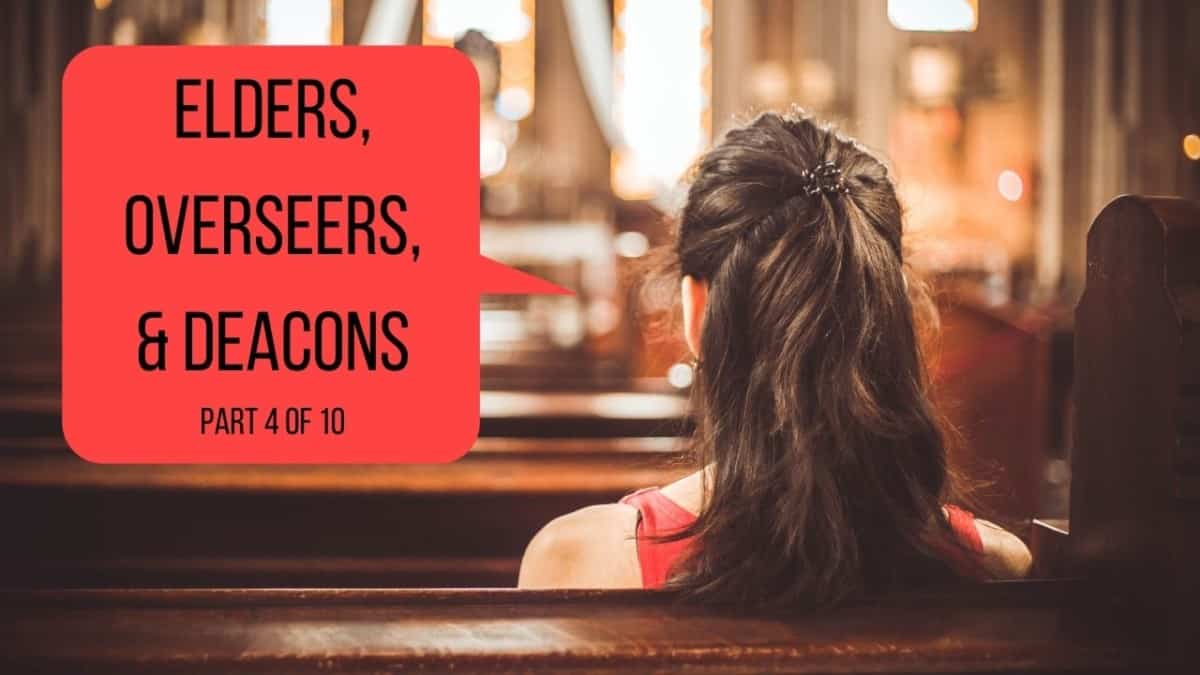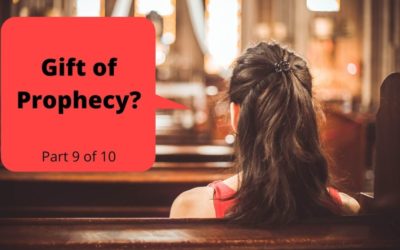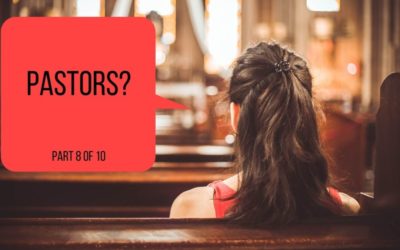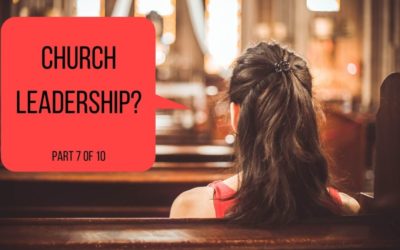Elders
Elders, Overseers, & Deacons
This blog is part four of a ten-part series on the church. Today we are going to look at the roles of elders, overseers, and deacons.
- Have you ever wondered about local church leadership and what elders, overseers, and deacons, jobs are?
- Have you been in a church that doesn’t appear to be functioning in a biblical manner because the leaders seem to be in positions of power, rather than that of service?
Elders Volunteer or are Appointed
Those in LOCAL church leadership who hold the office of overseers/elders and deacons have different roles than the general church using their gifts and ministries that they have been given.
These men (yes, men, this will be discussed in a later video) are specific leaders in the church and are appointed with prayer and fasting (Acts 14:23) or volunteer to serve IF they desire and meet the qualifications (1Timothy 3:1). These specific leadership roles are “offices,” like a job, and those holding them must have multiple gifts and ministries, specifically those of teaching, leading, and shepherding.
The Words “Elders” & “Overseers” Are Used Interchangeably
Their PURPOSE is to care for the church, the body, and to give exhortation in healthy teaching, as well as correcting those who speak against it. The Bible says that they must rebuke those people sharply so that they may be healthy in the faith. They are to devote themselves to prayer and to the ministry of the word. (Acts 6:5). This is a hard job! It sounds similar to the judges in Israel but is never referred to as such.
Elder – presbuteros – did not differ at all from the (ἐπίσκοποι) bishops or overseers, among Christians, those who presided over the assemblies (or churches), managed public affairs and administered justice.
Elder and overseer are used interchangeably, but, never elder and pastor (Acts 20:17, 28; Titus 1:5, 7).
OVERSEER/bishop – episkopé -supervision, overseership
Vs 2 episkopos -(used as an official title in civil life), overseer, supervisor, ruler, especially used with reference to the supervising function exercised by an elder or presbyter of a church or congregation. the focus is upon the responsibility for caring for others.
1985 epískopos (a masculine noun, derived from 1909 /epí, “on/fitting contact,” which intensifies 4649 /skopós, “look intently,” like at an end-marker concluding a race) – properly, an overseer; a man called by God to literally “keep an eye on” His flock (the Church, the body of Christ), i.e. to provide personalized (first hand) care and protection (note the epi, “on“).
Local Church Leadership
Elders or overseers are appointed in local congregations where believers are meeting together. They are not appointed over Christians in general or in ministries. There is no indication as to how many there should be. It would seem that it depends on who wants to serve and who is qualified. There should never be a person appointed to this position merely to fill the position.
We see that elders were appointed, plural, in the New Testament, and it seems best to have multiple people caring for the body in these ways. This would not only help in ministering so the burden is carried by several, but also to make them more accountable to one another.
High Christ-Like Standards
The REQUIREMENTS for overseers are very high moral and spiritual standards, and should never be taken lightly. They should be as Christ-like as possible.
According to 1 Timothy 3 an overseer/elder should be:
-
- above reproach
- the husband of one wife (if married)
- temperate
- self-controlled
- respectable
- hospitable
- able teacher
- not a drunkard
- not violent
- gentle
- not contentious
- free from the love of money
- He must manage his own household well and keep his children in control without losing his dignity (if he has children, they should obey him and he shouldn’t lose his temper with them)
- He must not be a recent convert (pride could be a problem and Satan could use it against the church)
- he must be well thought of by those outside the faith (or he may disgrace the church and Satan will use it against them)
Elder & Overseer Qualifications in Titus
In Titus 1 they were told to appoint elders in every town and it repeats the qualifications to be an elder.
-
- blameless,
- the husband of one wife, with faithful children who cannot be charged with dissipation or rebellion (if married with children)
- blameless as one entrusted with God’s work
- not arrogant
- not prone to anger
- not a drunkard
- not violent
- not greedy for gain
- he must be hospitable
- devoted to what is good
- sensible
- upright
- devout
- self-controlled
- he must hold firmly to the faithful message as it has been taught
The main purpose of an elder/overseer is to spiritually care for the church of God. The focus is on servant leadership.
Qualifications of Deacons
This passage then goes on to describe the requirements and role of a deacon. It is summed up as selfless service.
A DEACON (diakonos) is a waiter, a servant; anyone who performs any service, or an administrator. A deacon cares for the poor and sick. They must be:
-
- dignified
- not two-faced
- not given to excessive drinking
- not greedy for gain
- holding to the mystery of the faith with a clear conscience.
- must be husbands of one wife (if married)
- good managers of their children and their own households (if they have children)
It also says that they must be tested first, and only then to allow them to serve as deacons if they are found blameless. Deacons who have served well are promised a good standing for themselves and great boldness in the faith that is in Christ Jesus.
Deacons Wives
Likewise, this passage also addresses deacons’ wives. Their wives must be:
- dignified
- not slanderous
- temperate
- faithful in every respect
It would seem that this service to the body would benefit from having a husband and wife performing these duties together.
These instructions about the specific roles of elder and deacon are to let you know how people ought to conduct themselves in the household of God because it is the church of the living God. They should be the best examples as to how to be a Christian and how to serve one another.
Church Growth & Deacons
We see that when the church got bigger and there were more people to care for, they were told to “carefully select from among you, brothers, seven men who are well-attested, full of the spirit and of wisdom, whom we may put in charge of this necessary task. But we will devote ourselves to prayer and to the ministry of the word.” (Acts 6:3-5)
It would seem logical that the number of deacons would relate to the need and size of the local body.
Elders/Overseers, & Deacons Serve the Local Church
In short, elders and overseers have the duty of spiritual leadership and service to the church, including protecting them from false teachings and keeping things orderly. Deacons have the responsibility to serve and make sure the physical needs of the body are being met. Both are sacrificing to serve the body of Christ.
In part five we will take a look at money and tithing and how this relates to the church.




